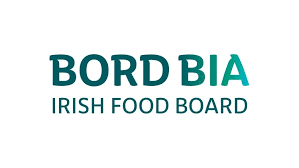Irish Sheep Trade & Prices Update
Lamb Prices Strengthen Amid Tight Supply and Export Demand
The Irish sheep trade saw a notable shift in late March 2025, with lamb prices firming after several weeks of decline. According to market reports, base quotes from major processors rose to €8.70–€8.80/kg for well-finished lambs, with Quality Assurance (QA) bonuses included. Sellers at the top end of the market are securing €9.10–€9.20/kg, along with higher carcass weight allowances up to 23.5kg.
Supply Constraints Driving Market Trends
The upward price movement is largely driven by tight lamb supplies and stable demand from both domestic and export markets. The Irish ewe flock contracted by 3.7% in December 2023 compared to the previous year, representing a reduction of 107,000 head. This decline is contributing to the limited availability of lambs for processing.
Other key lamb-producing regions in Europe and the UK are also experiencing supply constraints, with Eurostat data showing a contraction in breeding flock numbers.
Weekly Price Movements
For the week ending March 22nd, 2025:
- Reported deadweight lamb price: €8.47/kg, down €0.10/kg from the previous week.
- In 2024, the same week recorded a price of €8.50/kg.
Across the UK:
- Mainland GB lamb prices: Equivalent to €8.79/kg, up €0.04/kg.
- Northern Ireland: Prices fell to €8.06/kg, down €0.30/kg.
Prices for Southern Hemisphere lamb remain lower but are improving:
- Australia and New Zealand: Both reported prices of €4.48/kg, narrowing the gap with EU markets.
Throughput and Slaughter Data
The total sheep kill in DAFM-approved plants dropped to 37,117 head last week, compared to 53,922 during the same week in 2024. Year-to-date slaughter is down 22%, totaling 479,860 head. A smaller lamb crop and challenging lambing conditions have impacted availability for processing throughout the 2025 season.
Conclusion
The Irish sheep market is showing signs of recovery, with lamb prices rising due to constrained supply and steady export demand. As global supply tightens, Irish producers may benefit from improved competitiveness in EU markets over the medium term.
